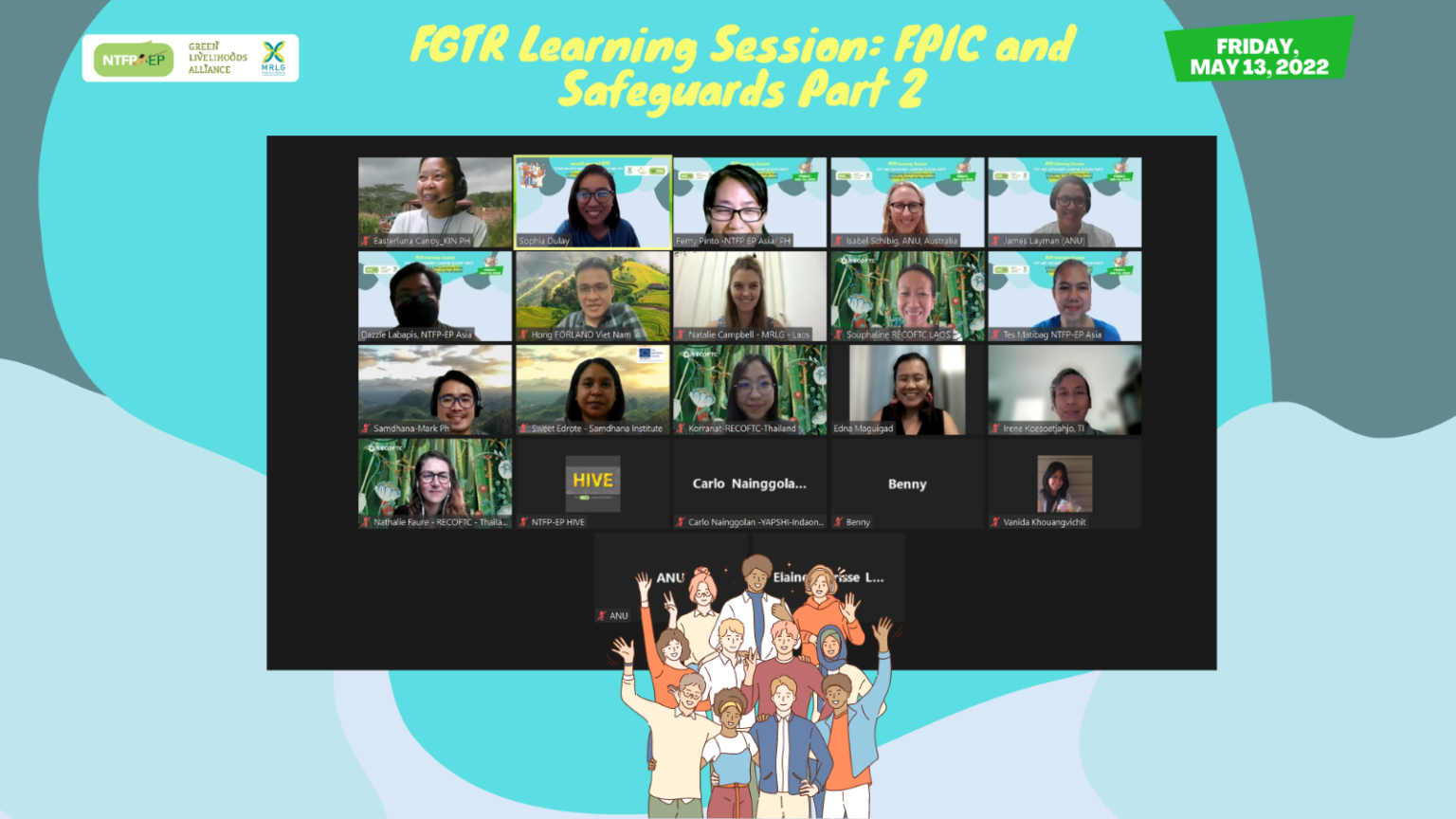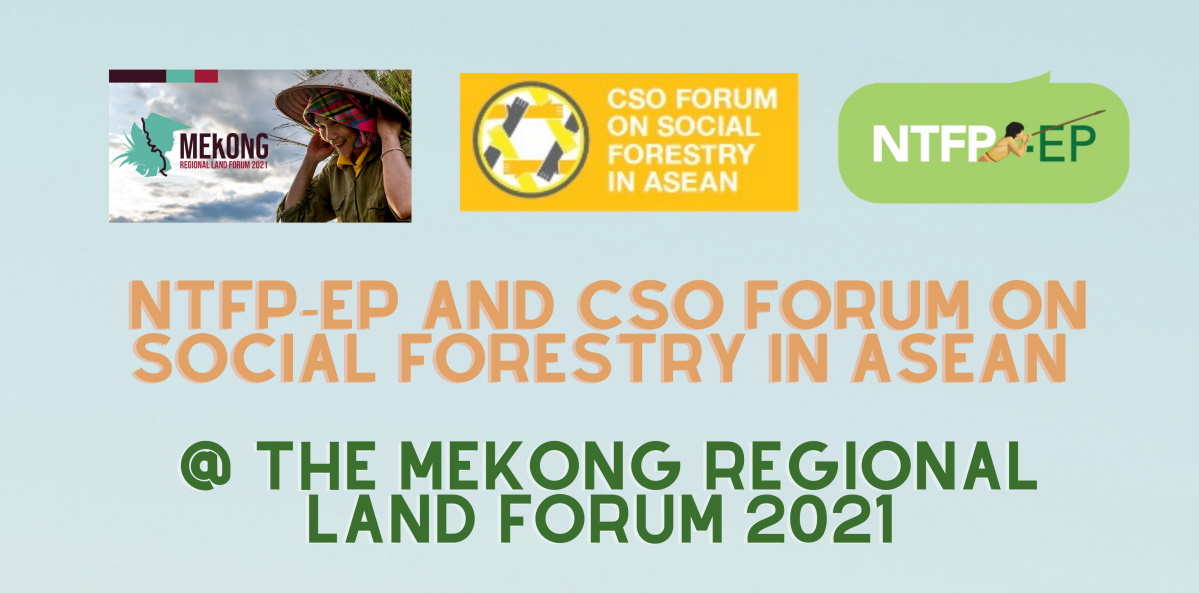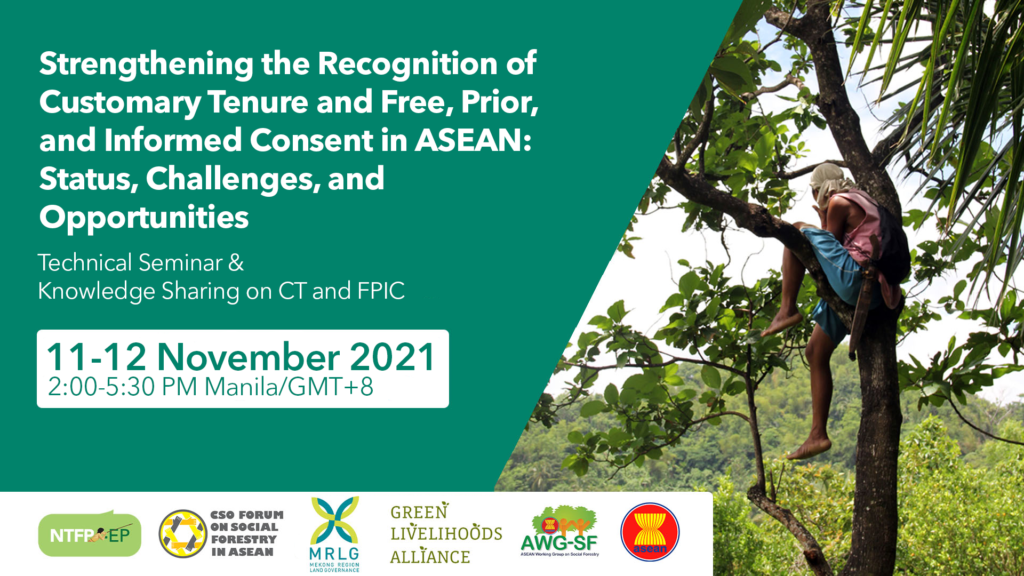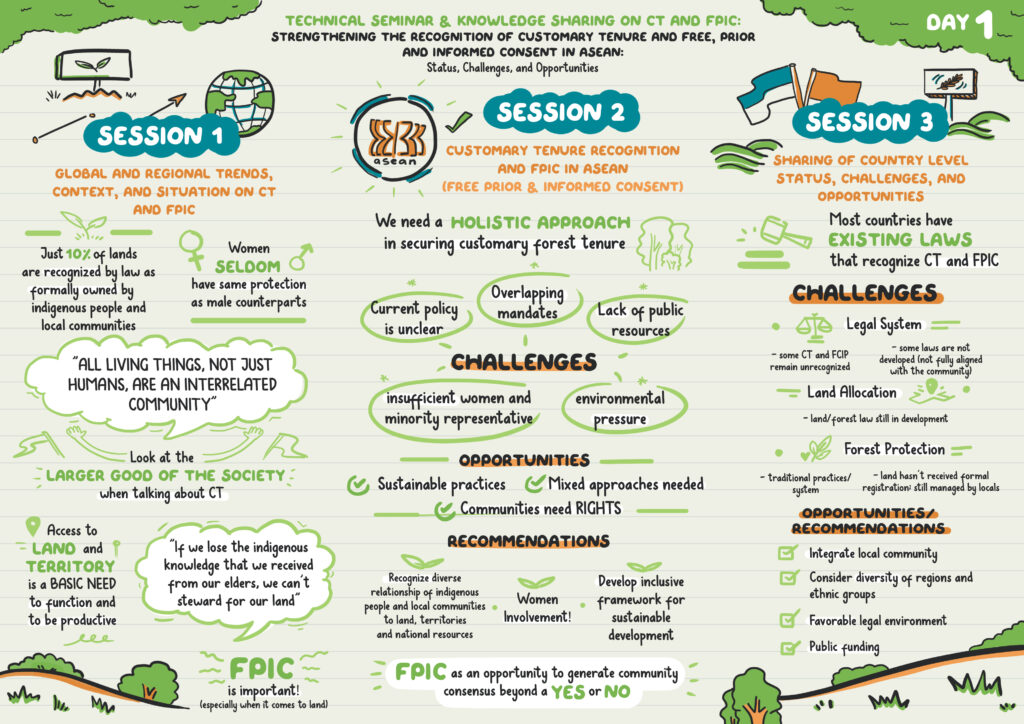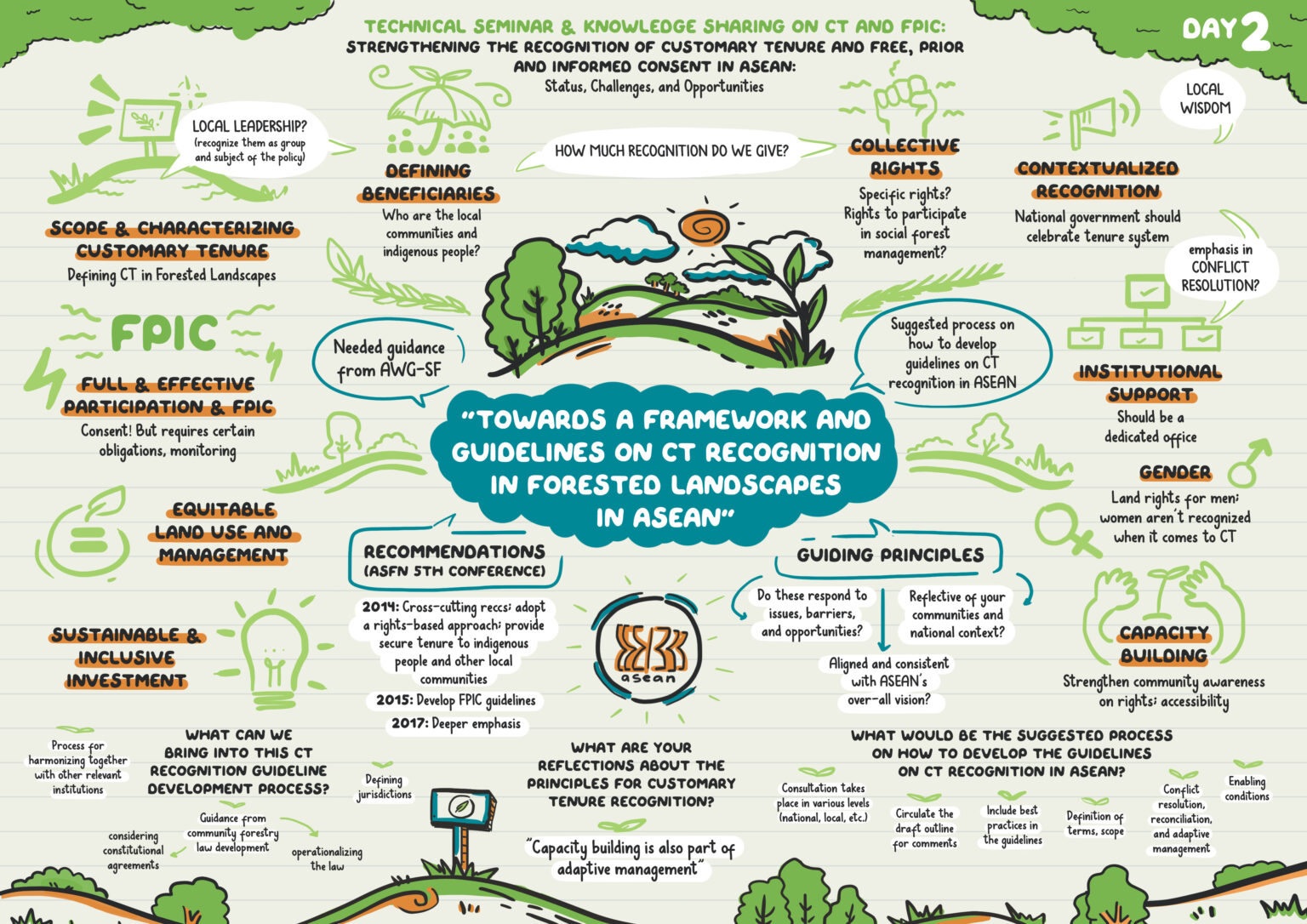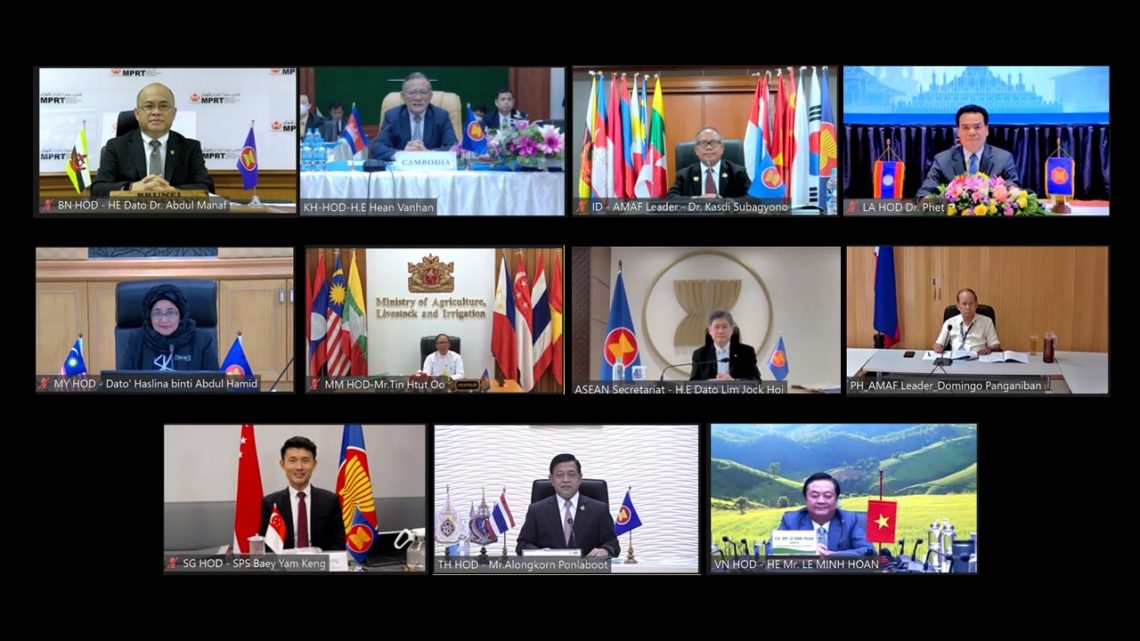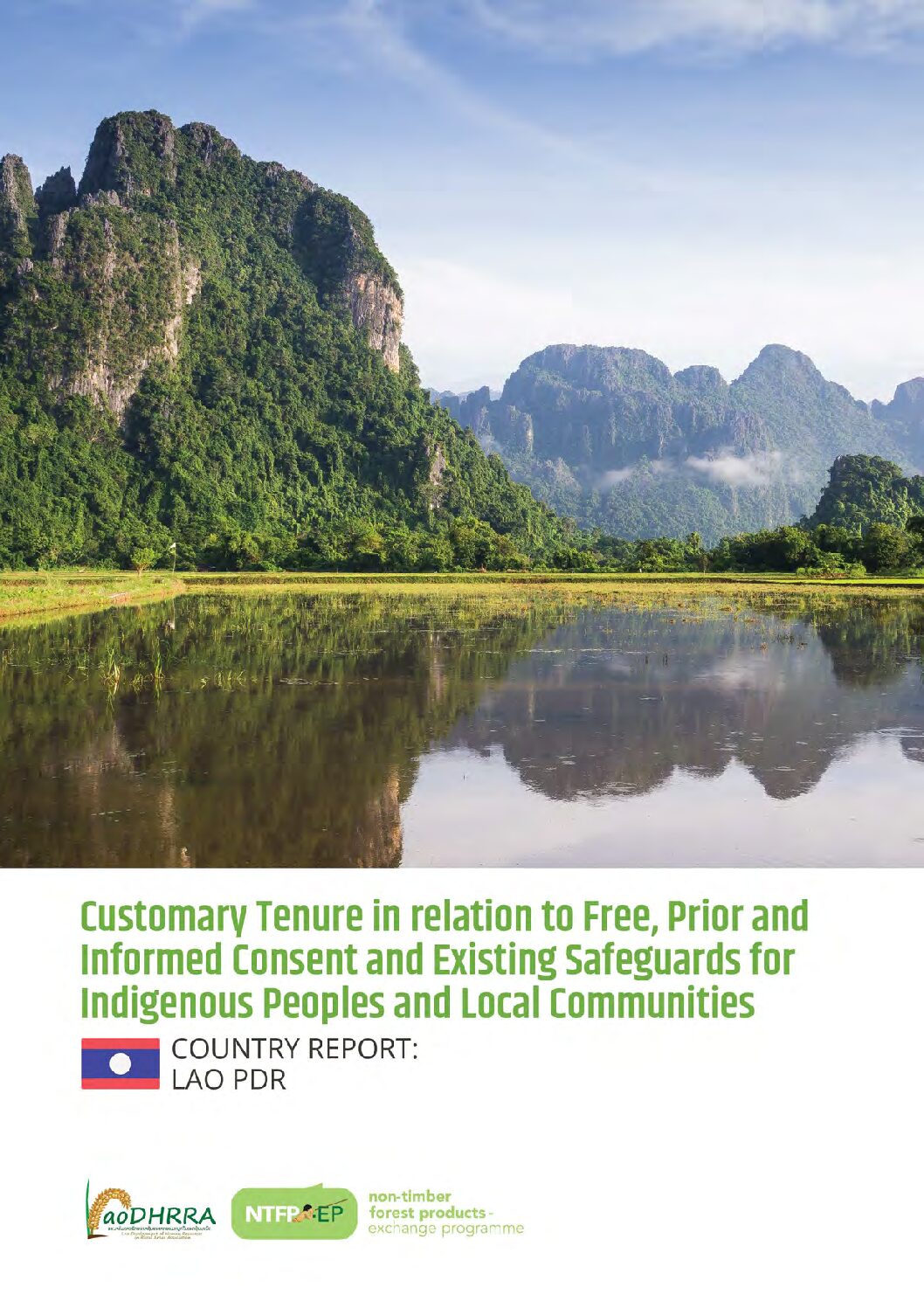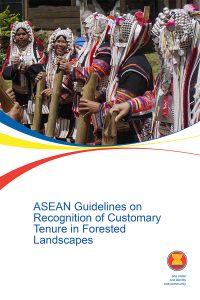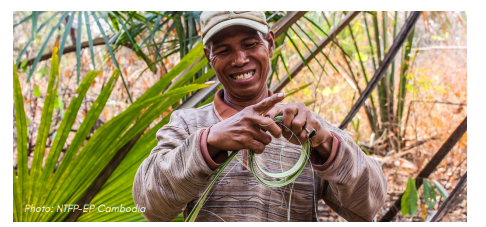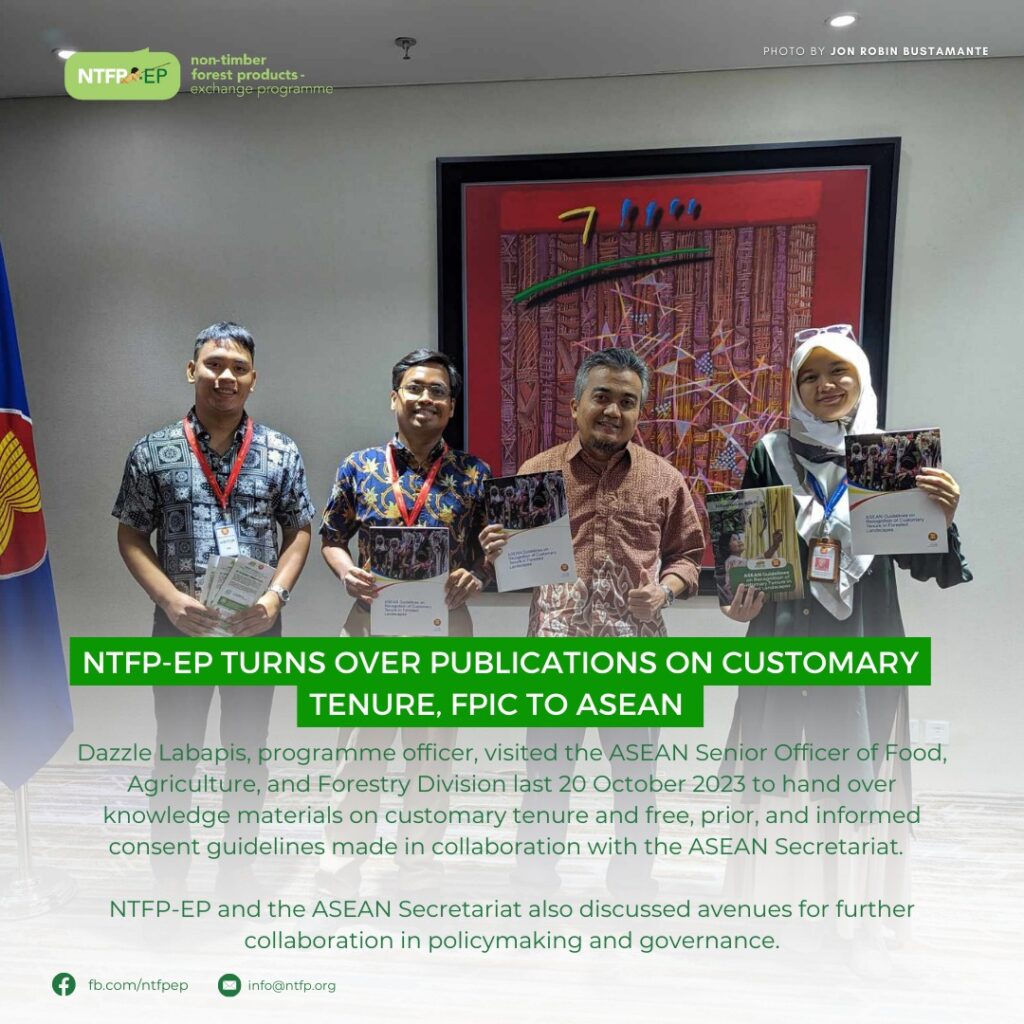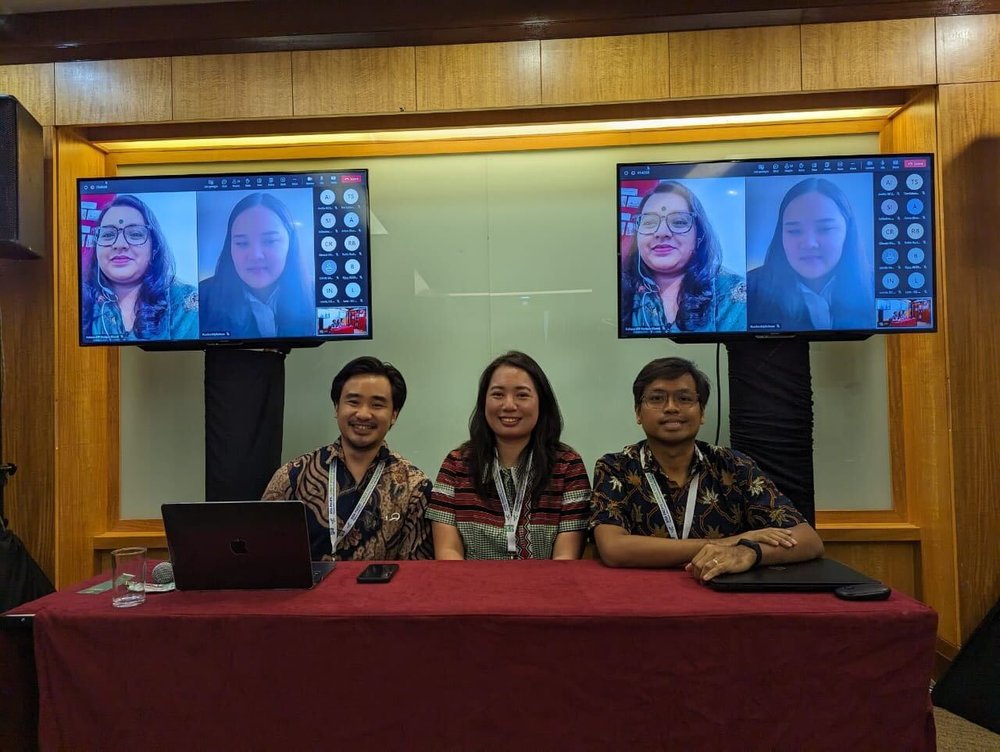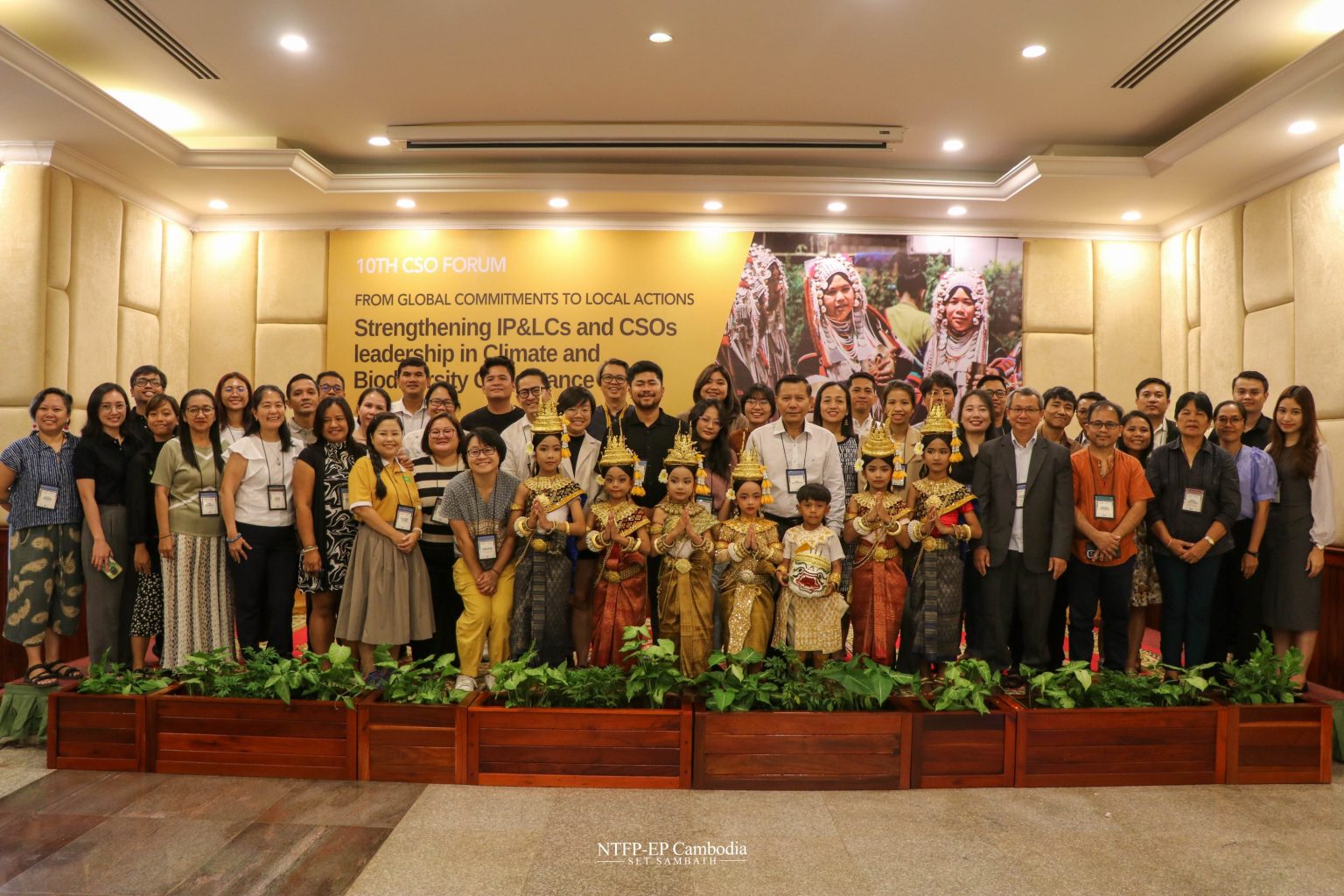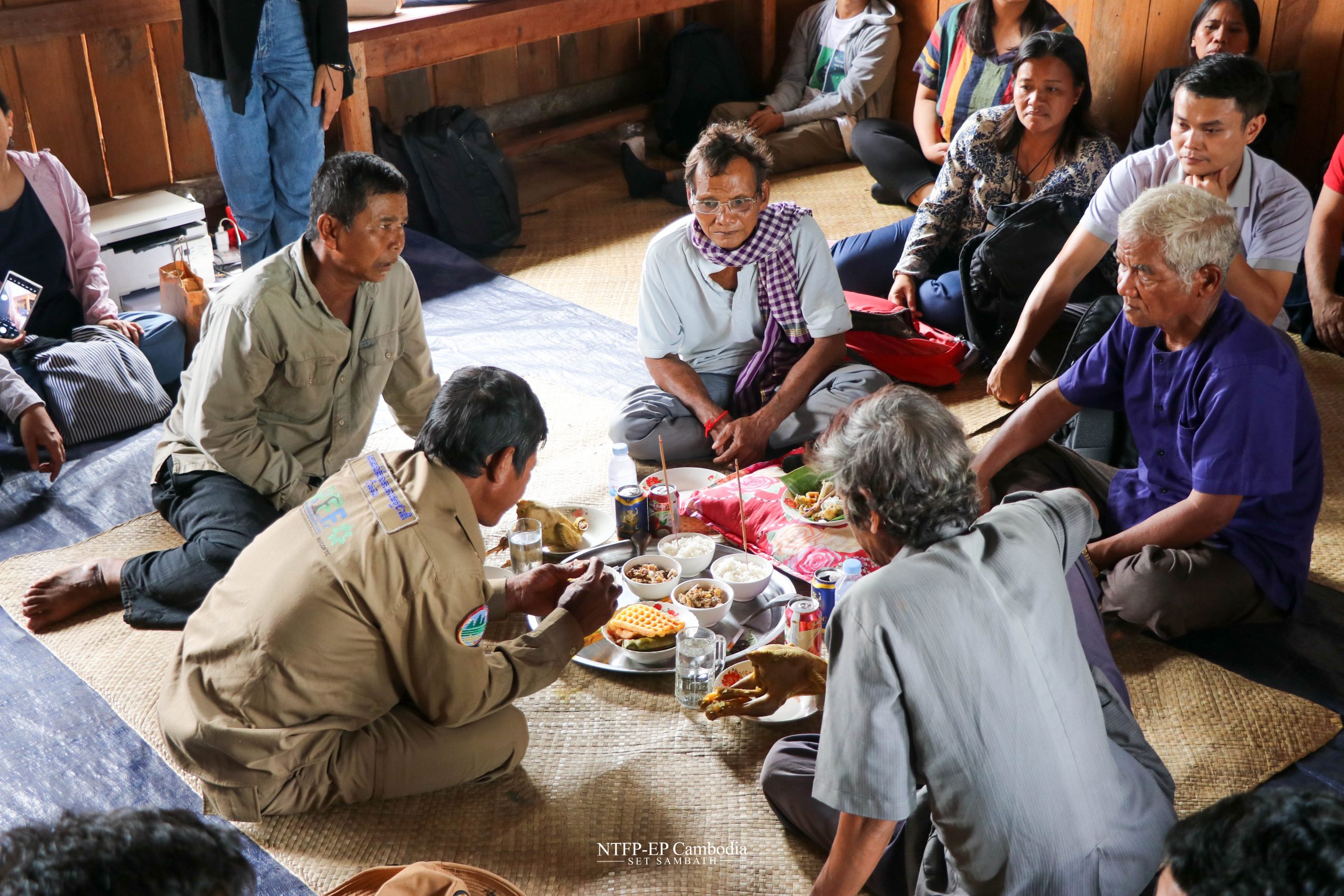

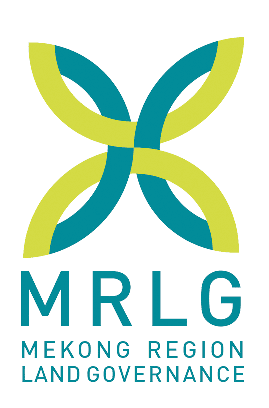

The Mekong Region Land Governance (MRLG) Project is dedicated to advancing the recognition of customary tenure rights within forested landscapes across the Mekong Region. Spearheaded by the Mekong Region Land Governance, our initiative brings together a coalition of regional organizations.
NTFP-EP has been implementing activities and initiatives on land and tenure rights with support from the MRLG for 2 Phases since October 2021, as part of a Regional Alliance on Customary Tenure, together with RECOFTC, Asia Indigenous Peoples Pact, and Asian Farmers Association, and the Customary Tenure Alliance members representing Cambodia, Lao PDR, Myanmar, and Vietnam. The main objective of this alliance is to promote safeguard mechanisms for the recognition and protection of customary tenure rights for forest-dependent communities, farmers, Indigenous Peoples, ethnic minorities, and women in the Mekong Region, in collaboration with regional platforms on forests, land, and natural resources.
MRLG Project receives funding support from esteemed partners such as SDC (Swiss Agency for Development and Cooperation), the Government of Luxembourg, and BMZ (German Federal Ministry for Economic Cooperation and Development)
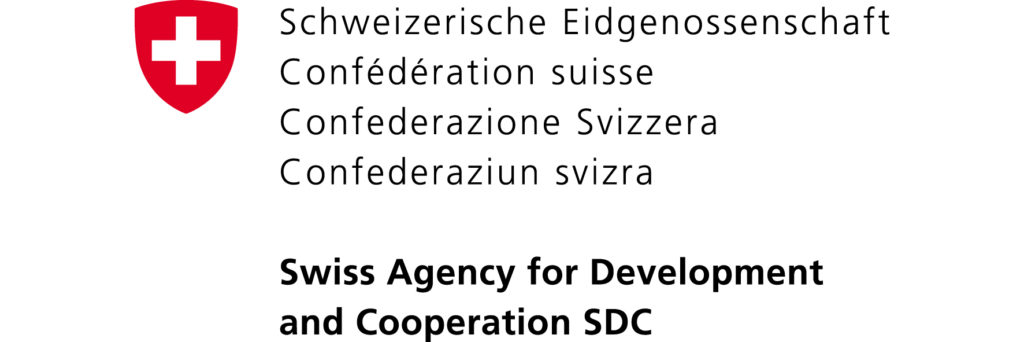
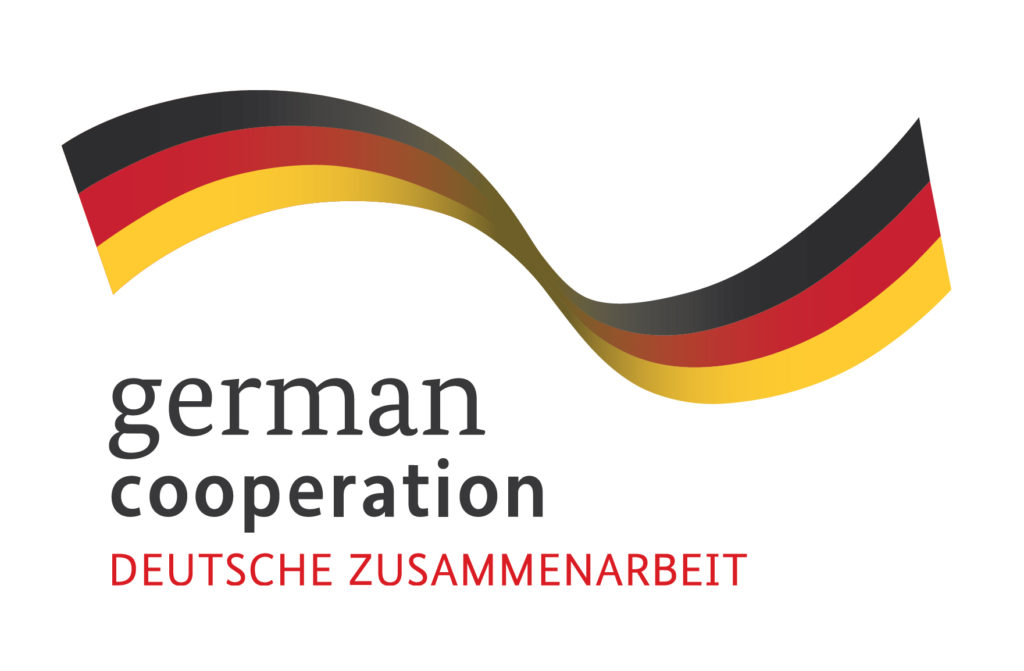




For more information about MRLG, visit https://www.mrlg.org/
MRLG Project Phase 2 (October 2020- December 2022)
For MRLG Phase 2, NTFP-EP served as the Outcome lead for Outcomes 2 and 3, which focused on the following:
Outcome 2: ASEAN Member States support and adopt the ASEAN Guidelines for Customary Tenure Recognition to support national policies and legislations.
This Outcome focused on assisting the key reform actors in ASEAN, specifically the ASEAN Working Group on Social Forestry (AWGSF) in developing a regional framework for recognizing customary tenure in forested landscapes. It was done by engaging a broader set of reform actors – including technical advisers and academia – in its formulation. The Outcome’s existing outputs and activities can continue to play a critical role in raising awareness and sharing evidence about customary tenure with ASEAN.
The expected outputs were the following:
Output 2.1: National consultations and case studies with national stakeholders on the status of customary tenure, to contribute to the Guidelines.
Output 2.2: Support CSO Forum engagement with AWG-SF & ASEAN to further the customary tenure agenda within ASEAN.
Output 2.3: Conduct dialogues and learning exchanges with ASEAN through the CSO Forum, specifically AWG-SF to inform the development of ASEAN CT Recognition Guidelines, and on customary tenure.
Output 2.4: Develop ASEAN Guidelines on the Recognition of Customary Tenure.
Outcome 3: Customary forest tenure safeguards, specifically Free, Prior, and Informed Consent (FPIC), are supported and advocated for, at national and regional levels.
This initiative was built upon the country CT Alliance partners’ work and initiative on Free, Prior, and Informed Consent (FPIC).. This Outcome is directly linked to Outcome 1 and Outcome 2 and focuses explicitly on exploring FPIC as an important mechanism to secure customary forest tenure. Outcome 3 directly complements and supports the work of the Regional Alliance members engaged in various national, regional, and global platforms that also focus on FPIC implementation. Additionally, Outcome 3 engages with the Customary Tenure Alliances and the broader agenda of strategic partners. The following should be achieved to achieve this outcome:
The expected outputs were the following:
- Output 3.1: Review FPIC safeguards implementation on the ground to highlight best practices and synergies with existing policies and legislation.
- Output 3.2: Create policy recommendations and approaches for FPIC implementation protecting customary tenure rights, beyond forest landscapes.
- Output 3.3: Regional learning and exchanges on FPIC as a safeguard, and its implementation (for CFT) and processes.
MRLG Phase 2 Project News and Updates:
Civil society, IP reps review FPIC rights and safeguards
The event, the first part of a learning series, aimed to give participants an overview of the historical basis and policy origins of free, prior, and informed consent (FPIC) define its key elements, highlight its benefits, determine its applications in the context of forestry and customary tenure, and identify the existing issues and barriers that hinder its implementation… Readmore »
Cases on the Ground: Part II of the FGTR learning session on FPIC and Safeguards
n13 May 2022, the second part of the Free, Prior and Informed Consent (FPIC) and Safeguards Learning Session was held through an online event entitled, “Cliniquing and Learning from Existing Cases on the Ground.” … Readmore »
NTFP-EP, CSO Forum to tackle customary tenure and FPIC at Mekong Regional Land Forum
NTFP-EP and the Civil Society Organizations Forum on Social Forestry in ASEAN (CSO Forum in ASEAN) will engage in several important plenary and breakout group sessions in the upcoming 3rd Mekong Regional Land Forum 2021 to be held on 26-27 M.. Readmore »
Technical seminar on strengthening customary tenure recognition, FPIC scheduled for 11-12 Nov
A technical seminar and knowledge sharing on Strengthening the Recognition of Customary Tenure and Free, Prior, and Informed Consent in ASEAN: Status… Readmore »
Experts, indigenous groups: Prioritize recognition of CT, FPIC
Forestry experts and representatives from indigenous peoples and local communities called for better regional and national policies related to Customary Forest Tenure (CT) and Free, Prior, and Informed Consent (FPIC) in the ASEAN region during a technical seminar and knowledge sharing event on CT and FPIC hel… Readmore »
Forestry network partners take key steps towards CT recognition in ASEAN forests
The second day of the technical seminar and knowledge sharing on Customary Tenure (CT) and Free, Prior, and Informed Consent (FPIC) provided an opportunity for the ASEAN Member States of the ASEAN Working Group on Social Forestry (AWG-SF) to reflect on the key messages … Readmore »
ASEAN Ministers adopt guidelines on customary forest tenure recognition
The ASEAN Ministers on Agriculture and Forestry (AMAF) formally adopted the ASEAN Guidelines on Recognition of Customary Tenure in … Readmore »
Knowledge Products and Publications
Vietnam Country Report: Customary Tenure in relation to Free, Prior and Informed Consent and Existing Safeguards for Indigenous Peoples and Local Communities
The study investigated how free, prior, and informed consent and other existing safeguards on customary tenure impact customary tenure recognition in Vietnam, particularly for local communities in mountainous areas.
The study used a holistic approach by placing the subject in conjunction with existing tenures and customs, changes through time periods, and external factors including climate change, national policy, market, and technology development. In addition, the community consultation process was essential to help the communities adapt to changes in the external environment and conditions.
Readmore »
Myanmar Country Report: Customary Tenure in relation to Free, Prior and Informed Consent and Existing Safeguards for Indigenous Peoples and Local Communities]
Customary land tenure is a complex and diverse system in Myanmar, and it is widely used by ethnic or Indigenous Peoples (IPs) for their livelihoods. However, it is not yet legally recognized or protected by domestic legal frameworks, leaving indigenous lands vulnerable to expropriation by business investors, development projects, and militarization.
While there is a growing recognition of the importance of customary land tenure in Myanmar, there is still no formal guideline for FPIC in the legal framework, and the National Land Law, which is expected to recognize customary land tenure, has yet to be developed…
Readmore »
Lao PDR Country Report: Customary Tenure in relation to Free, Prior and Informed Consent and Existing Safeguards for Indigenous Peoples and Local Communities
Laos is currently revising a few policies and legislations to improve the management of land and natural resources within the country. Some of these policies focus on respecting customary land-use rights, promoting public participation in investment, ensuring the Free, Prior, and Informed Consent (FPIC) process, and empowering women in all areas of work, especially in land and natural resource management.
However, there are gaps and complexities in the implementation of these laws. It has been found that some laws have inconsistencies or contradictions in their articles, such as Article 64 of the Forest Law and Article 130 of the Land Law…
Readmore »
Cambodia Country Report: Customary Tenure in relation to Free, Prior and Informed Consent and Existing Safeguards for Indigenous Peoples and Local Communities
In recent years, the Cambodian government has taken strides by introducing a suite of new legislation and regulations designed to acknowledge and safeguard the land, natural resources, and rights of Indigenous Peoples, including customary tenure. The available customary tenure options for Indigenous Peoples in Cambodia confer a degree of security regarding land and resources. This encompasses collective land titles, community forestry, community fisheries, and community-protected areas. However, consent in any form is still rarely seen in practice, especially on sensitive policies, programs, and mechanisms. There is no standard free, prior, and informed consent (FPIC) process, making existing tenure arrangements susceptible to threats such as land grabs and other encroachments. Readmore »
Explainer Video: What is Customary Forest Tenure and Free, Prior, and Informed Consent (FPIC)?
Customary Forest Tenure is a set of rules that govern and regulate community allocation, use, access, and transfer of natural resources. But why is it important for… Readmore »
Official Document: ASEAN Guidelines on Recognition of Customary Tenure in Forested Landscapes
The need for a set of guidelines on customary forest tenure recognition arises in response to apparent gaps in realized customary forest tenure recognition; contradictory national positions towards indigenous and local knowledge, systems, and practices; inadequate implementation; and the 02 ASEAN Guidelines on Recognition of Customary Tenure in Forested Landscapes need to enhance forest governance in ways that promote existing forest stewardship, biocultural diversity, and sustainable practices. In preparation for developing these Guidelines, national and regional case studies, multi- stakeholder technical seminars, and policy dialogues were organized and participated in by multiple actors from the ASEAN and beyond between June 2021 to March 14, 2022. Readmore »
Briefer: ASEAN Guidelines on Recognition of Customary Tenure in Forested Landscapes
In Southeast Asia, approximately 300 mi lion people reside in rural areas, with up to 70 milion relying on forests for their livelihoods. This includes Indigenous Peoples and local communities engaged in traditional farming, fishing, and forestry activities. Readmore »
NTFP-EP Turns Over Publications on Customary Tenure, FPIC to ASEAN
Dazzle Labapis, program officer and thematic lead for tenure rights and governance (TRG), together with Jon Robin Bustamante, Communications and Knowledge Management Officer, and JV Colili, intern for TRG, visited the ASEAN Secretariat in Jakarta, Indonesia, last 20 October 2023 to turn over knowledge materials made in collaboration with the ASEAN Secretariat and discuss current programs of NTFP-EP and possible avenues for collaborations. Readmore »
MRLG Project Phase 3 (November 2023 – October 2025)
Under its 3rd and final phase, spanning from November 2023 to October 2025, the MRLG Project envisions three primary outcomes:
Outcome 1: Regional and national reform actors will understand and utilize the ASEAN Customary Tenure Guidelines to enhance national policies, legislation, and initiatives concerning land and forest governance.
Outcome 2: National reform actors will be equipped to advocate for recognizing customary tenure in practical settings.
Outcome 3: Climate change-related programs and financing within the Mekong Region will explicitly include safeguards to uphold the tenure rights of smallholder farmers and forest-dwelling communities. Here, NTFP-EP plays a pivotal role through capacity building, knowledge dissemination, and bridging the gap between customary tenure and climate change concerns.
In line with these outcomes, NTFP-EP will contribute and work on leading Outcome 1 by organizing regional learning exchanges on the important role of customary tenure in climate and biodiversity, organizing country-level discussions to look into pathways and opportunities to implement the ASEAN Customary Tenure Guidelines in the Mekong region, and co-developing knowledge products and learning materials to localize the ASEAN Customary Tenure Guidelines.
Under Outcome 2, NTFP-EP will support the ASEAN Working Group on Social Forestry and the ASEAN Secretariat in developing a Regional Handbook on Free, Prior, and Informed Consent.
MRLG Phase 3 Project News and Updates
Creating space for the youth of Asia to drive climate solutions
With the 2023 United Nations Climate Change Conference (COP 28) wrapped up in Dubai, civil society organisations, governments, and other stakeholders reflected on the series of dialogues with a shared goal of achieving climate justice for all. Readmore »
Network of Civil Society Organizations, Indigenous Peoples, Local Community representatives tackled climate, biodiversity, and tenure for its 10th annual meeting
The forum addressed the need for a transformative approach, genuine inclusion, and equitable and meaningful engagement of the IPs&LCs alongside CSOs in the local, national, regional, and global policy movement, focusing on the climate and biodiversity’s welfare and influence on the territories of life and the life those most at risk biodiversity loss and climate change. Readmore »
Reflections from the 2025 MRLG Regional Learning Exchange on Customary Tenure Recognition in Luang Prabang
From June 10–12, 2025, over 50 participants from Cambodia, Laos, Myanmar, Thailand, and Vietnam gathered in the beautiful and culturally rich city of Luang Prabang, Lao PDR, for MRLG’s second Regional Learning Exchange on Customary Tenure Recognition. Organized under the MRLG-led Regional Alliance on Customary Tenure Recognition… Readmore »
ASEAN Customary Tenure Guidelines and FPIC Handbook launched in key country events
To build on the momentum and encourage uptake and implementation, the ASEAN Guidelines and the FPIC Handbook were launched through two national events earlier this year in Cambodia and Vietnam. These events brought government representatives, civil society and development partners and local community members together to discuss and reaffirm commitment and endorse the Guidelines and the FPIC Handbook… Readmore »
Knowledge Products and Publications
From Global Commitments to Local Actions: Strengthening IPs&LCs and CSO Leadership in Climate and Biodiversity Governance in Southeast Asia
A technical report of the 10th CSO Forum in Siem Reap, Cambodia Readmore »
Join us in our journey towards sustainable land governance and community empowerment in the Mekong Region.
For collaboration and inquiries about upcoming projects and activities, please contact:
Dazzle Labapis
Project Coordinator for the NTFP-EP MRLG Project
Programme Officer, NTFP-EP
dazzle.labapis@ntfp.org

